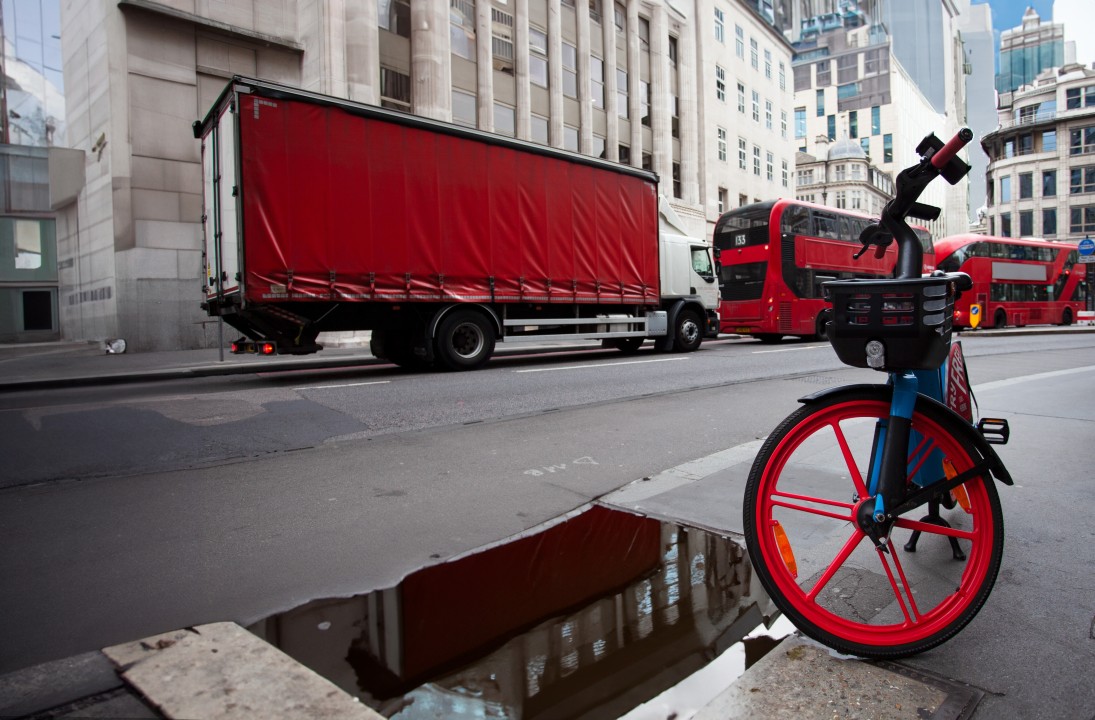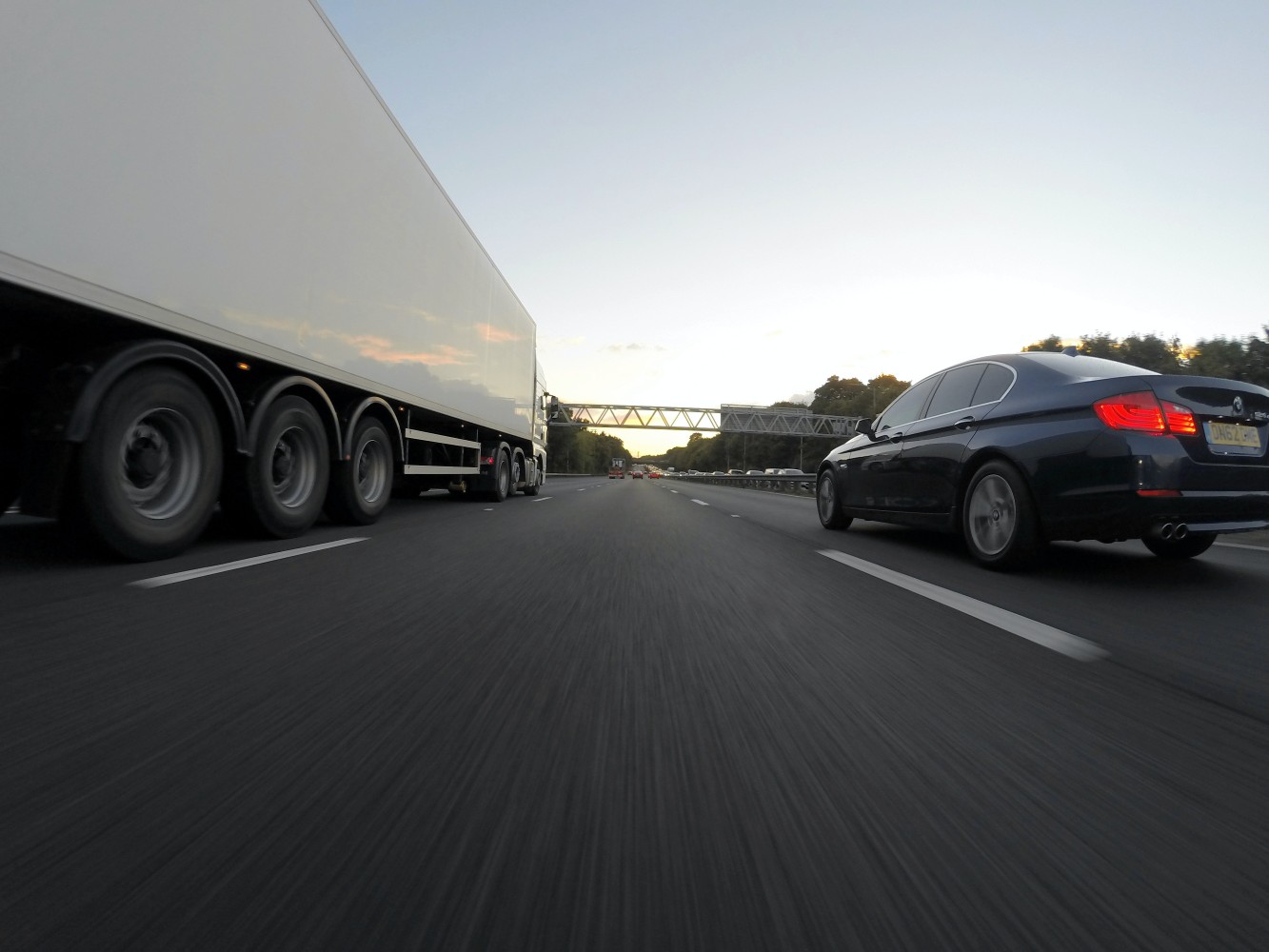
Susie Jones
Vijf mythes over vrachtwagenchauffeurs ontkracht
Gemaakt: 19-08-2024
•
Bijgewerkt: 19-08-2024
Vrachtwagenchauffeur is al eeuwenlang de ruggengraat van de wereldwijde handel - het leveren van goederen en benodigdheden over de hele wereld. Maar ondanks de essentiële rol van vrachtwagenchauffeur is hij lange tijd gehuld geweest in mythes en misvattingen.
Hoewel sommige van deze mythes met een korreltje zout worden genomen, kunnen sommige schadelijk zijn voor de vrachtwagenindustrie en degenen die erin werken. Daarom is het van het grootste belang om deze misvattingen te ontkrachten om ervoor te zorgen dat vrachtwagenchauffeurs een aantrekkelijke carrièrekeuze blijven voor toekomstige generaties. We vroegen onze community van chauffeurs op Facebook naar enkele van de grootste mythes die ze tijdens hun carrière hebben gehoord.
1. Vrachtwagenchauffeurs zitten de hele dag
"Vrachtwagenchauffeurs zitten de hele dag." Een veelgehoorde uitspraak van vrachtwagenchauffeur Luke.
De wereld van vrachtwagenchauffeurs is meer dan alleen rijden. Vrachtwagenchauffeurs werken vaak samen met anderen in terminals, dokken en magazijnen om vracht te lossen en te laden. Achter het stuur gaat het ook niet allemaal van een leien dakje. Truckers moeten zich concentreren op het manoeuvreren met hun voertuigen en moeten zich houden aan strenge tachograafregels. Een goede kennis van de gebieden waar ze wel en niet mogen rijden is noodzakelijk, net als een goede kennis van potentiële gevaren.
2. Alle truckers zijn mannen
Dit is een verouderd stereotype dat niet overeenkomt met de moderne realiteit in de vrachtwagenwereld. Onlangs heeft er een aanzienlijke verschuiving plaatsgevonden in de verhouding tussen mannelijke en vrouwelijke vrachtwagenchauffeurs. In 2021 vormden vrouwelijke chauffeurs slechts 1% van de 315.000 vrachtwagenchauffeurs in het Verenigd Koninkrijk. Dit aantal neemt echter elk jaar toe naarmate de sector zich ontwikkelt en inclusiviteit omarmt. Chauffeurs zoals Jodi Smith zijn onmisbare pleitbezorgers voor vrouwen in de sector. Jodi documenteert haar ervaringen als vrachtwagenchauffeur online en inspireert anderen om achter het stuur te kruipen.
3. Iedereen kan een vrachtwagen besturen
Velen gaan ervan uit dat als ze met een auto kunnen rijden, ze ook een vrachtwagen kunnen besturen. Het besturen van een vrachtwagen vereist echter unieke vaardigheden die niet voor iedereen geschikt zijn. Voor het besturen van een commerciële vrachtwagen is een certificaat van vakbekwaamheid (CPC) vereist. Om een getuigschrift van vakbekwaamheid te behalen, moeten chauffeurs vijf tests afleggen:
Theorie
Casestudy
Off-road oefeningen
Rijden op de weg
Praktische demonstraties
Daarnaast vereist het rijden in een vrachtwagen een levensstijl die niet voor iedereen is weggelegd - met lange geïsoleerde uren op de weg die vaak onverwachte uitdagingen met zich meebrengen.
4. Remafstand
"Automobilisten denken dat de remweg van een vrachtwagen hetzelfde is als die van een auto" is iets wat vrachtwagenchauffeur Paul al te vaak heeft gehoord.
De remweg van een vrachtwagen verschilt aanzienlijk van die van een auto door verschillende factoren: - Gewicht: het totale gewicht van een geladen vrachtwagen weegt meer dan dat van een gewone auto, wat betekent dat er meer kracht nodig is om af te remmen en tot stilstand te komen.
- Mechanica: het remsysteem van een vrachtwagen is afgestemd op zware ladingen, wat betekent dat ze grotere en robuustere assen en remonderdelen hebben - wat resulteert in langere reactietijden en grotere remafstanden.
Bij 60 km/u heeft een vrachtwagen 132 meter nodig om te remmen in vergelijking met de 73 meter van een auto - dit benadrukt hoe belangrijk het is om genoeg ruimte tussen jezelf en een vrachtwagen te laten wanneer je hard remt.

5. Truckers zijn vies
Door de jaren heen hebben vrachtwagenchauffeurs het stereotype gekregen dat ze vies en lui zijn - een oneerlijke veralgemening. Veel langeafstandschauffeurs brengen veel tijd van huis en in hun cabine door, wat betekent dat hun hygiëne en de netheid van hun cabine een prioriteit is.
Het is belangrijk om de mythes en misvattingen rond vrachtwagenchauffeurs te ontkrachten om het beroep beter te begrijpen. Het ontkrachten van een aantal veelvoorkomende mythes zal de sector aantrekkelijker maken voor toekomstige generaties en het bewustzijn vergroten dat vrachtwagenchauffeur een hooggekwalificeerd beroep is dat een vitale rol speelt in onze economie.
Wordt trucken eenzaam?
Voordat je een carrière als vrachtwagenchauffeur overweegt, is het belangrijk om te begrijpen wat de baan inhoudt. Een probleem voor veel vrachtwagenchauffeurs is omgaan met eenzaamheid - lange uren op de weg met weinig tot geen communicatie is moeilijk voor sommigen, maar een droom voor anderen.
Bovendien kan de tijd weg van dierbaren voor velen zijn tol eisen. Het is echter gemakkelijker geworden voor chauffeurs om met vrienden en familie te communiceren via telefoon of videogesprek. Er zijn ook veel forums en nuttige tips beschikbaar voor vrachtwagenchauffeurs om eenzaamheid te verlichten.
Kan een vrachtwagenchauffeur een tweede baan hebben?
Nu het Verenigd Koninkrijk door een crisis in de kosten van levensonderhoud gaat, overwegen meer chauffeurs een tweede baan. Een tweede baan brengt echter problemen en risico's met zich mee, vooral in de vrachtwagenwereld. Chauffeurs moeten overwegen of hun bedrijf een beleid voor bijbaantjes heeft voordat ze verder gaan.
Bij het opstellen van een secundair tewerkstellingsbeleid moeten bedrijven en operators rekening houden met de effecten op de prestaties, aanwezigheid en vermoeidheid van de chauffeur. En dan hebben we het nog niet eens over de naleving van de regels voor werktijden en arbeidstijden van chauffeurs.


